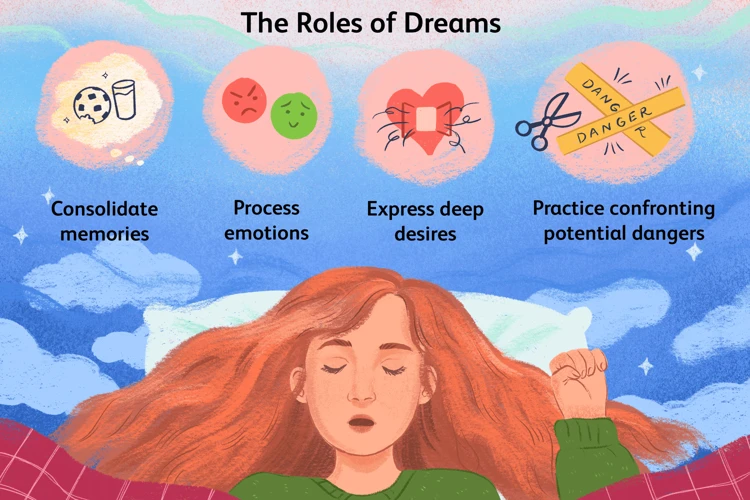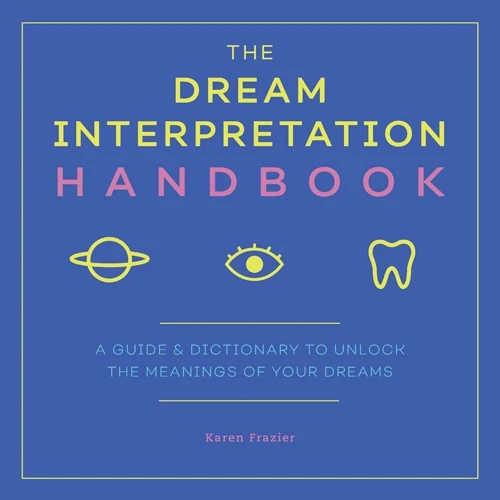Do you ever find yourself lost in a dream, feeling disoriented and unsure of your surroundings? It’s a perplexing experience that can leave you wondering about its connection to your real-life experiences. This article delves into the intriguing world of dreams and explores the profound link between being lost in dreams and our daily lives. By understanding the purpose of dreams, the types of dreams we have, and the symbolism behind them, we can gain valuable insights into the enigmatic sensations of feeling lost. Join us on this captivating journey as we unravel the mysteries of dreams and the profound impact they have on our waking existence.
Understanding Dreams

Have you ever wondered about the deeper meaning behind our dreams? Understanding dreams can be a perplexing endeavor, as they often seem to transport us to alternate realities filled with symbolism and emotions. These nocturnal adventures serve a purpose beyond mere entertainment while we sleep. Dreams are a window into our subconscious mind, allowing us to process and make sense of our thoughts, feelings, and experiences. They can provide insight into our deepest desires, fears, and unresolved issues. Some dreams are fleeting, while others leave a lasting impression, like being lost in a labyrinth. To truly grasp the meaning behind being lost in dreams, it’s essential to explore the various types of dreams we have, the possible symbolism they hold, and the connection they have to our waking lives. So let’s delve into the fascinating realm of dream interpretation and explore the profound link between being lost in dreams and our real-life experiences.
The Purpose of Dreams
Dreams serve a fascinating purpose in our lives, acting as a gateway to our subconscious mind. They provide us with a unique and valuable opportunity to process our thoughts, emotions, and experiences in a symbolic and metaphorical way. One of the primary purposes of dreams is to help us make sense of our daily lives by integrating and organizing information. During sleep, our brains consolidate memories, process emotions, and problem-solve through the narrative of our dreams. They can also serve as a form of therapy, allowing us to explore and confront unresolved issues or repressed emotions. By analyzing the symbols and themes present in our dreams, we can gain a deeper understanding of ourselves and the challenges we face in our waking lives. When it comes to dreams of being lost, they may symbolize feelings of confusion, uncertainty, or a need for direction or purpose. Exploring the meaning behind these dreams can provide valuable insights and guidance in navigating our real-life experiences. To learn more about the significance of being lost in dreams, you can check out our in-depth article on the meaning of being lost in dreams.
Types of Dreams
Dreams come in various forms, each with its own unique characteristics. Understanding the different types of dreams can shed light on the intricacies of our subconscious mind. One common type of dream is the **lucid dream**, where the dreamer is aware they are dreaming and can often control the dream’s narrative and outcomes. Lucid dreams provide a sense of empowerment and offer an opportunity for self-exploration. Another type is the **prophetic dream**, which is believed to provide glimpses of future events or insights into our own lives. These dreams can be vivid and detailed, leaving the dreamer with a profound sense of connection to their waking reality. **Nightmares** are intense and distressing dreams that evoke strong emotions such as fear, anxiety, and terror. They often arise from unresolved fears or traumatic experiences. Finding ways to interpret and analyze nightmares can help us understand the underlying messages they hold. Lastly, there are **symbolic dreams**, where objects, people, or situations in the dream carry deeper meanings and may represent aspects of our unconscious mind. These dreams are rich in symbolism and require careful analysis to uncover their significance. Exploring the different types of dreams can provide valuable insights into our emotional state, unresolved issues, and even offer glimpses of our potential future. It’s important to pay attention to the patterns and themes that arise in our dreams, as they can hold profound meaning and guide us in our waking lives. To learn more about interpreting and analyzing lost dreams, check out this helpful article. If you’re looking for tips on overcoming fear and anxiety in dreams, be sure to read our informative guide here.
Dream Symbolism
Dream Symbolism is a fascinating aspect of dream analysis that explores the hidden meanings behind the elements and events that occur in our dreams. Here are some key points to understand about dream symbolism:
1. Objects and Animals: In dreams, various objects and animals can carry symbolic meanings. For example, dreaming of a snake might represent transformation or hidden fears, while a butterfly could symbolize growth and freedom. It’s important to consider the personal associations and cultural symbolism attached to these elements when interpreting their significance in dreams.
2. Settings and Environments: The locations and environments in dreams can also hold symbolic representations. Dreaming of being lost in a dense forest might reflect a feeling of confusion or being overwhelmed in real life. Similarly, dreaming of an open field could signify a sense of freedom or a desire for new opportunities.
3. Emotions and Sensations: The emotions and sensations experienced during dreams often carry symbolic messages. For instance, feeling fear or anxiety in a dream may indicate unresolved concerns or hidden worries. Likewise, experiencing joy or excitement may represent a sense of fulfillment or happiness.
4. Universal Symbols: Some dream symbols hold universal meanings across cultures and societies. These include archetypal images such as the sun, moon, water, and fire. Exploring the collective unconscious can shed light on the deeper symbolic significance of these universal symbols.
5. Personal Interpretation: While there are common themes in dream symbolism, it’s crucial to remember that personal interpretation is key. Symbols can have unique meanings based on an individual’s personal experiences, beliefs, and emotions. Keeping a dream journal and reflecting on recurring symbols can help uncover their personalized significance.
By analyzing dream symbolism, we can unlock valuable insights into our subconscious mind and gain a deeper understanding of ourselves. The next section will explore the experience of feeling lost in dreams and its emotional impact.
The Experience of Feeling Lost

Feeling lost is an unsettling experience that can leave us feeling disoriented and unsure of our path. This sensation can extend beyond the boundaries of our waking lives and enter the realm of our dreams. Dreams of being lost can be particularly distressing, as they evoke a sense of helplessness and confusion. As we navigate through these dream landscapes, we may find ourselves searching for familiar landmarks, desperately trying to find our way back. The emotional impact of these dreams can linger long after we wake, leaving us pondering their significance and connection to our real-life experiences. Whether these dreams reflect a subconscious fear of losing our way in life or symbolize deeper issues of identity and purpose, exploring the experience of feeling lost in the dream world can offer profound insights into our waking existence. Understanding the emotional impact of these dreams and their potential significance can guide us in our journey towards self-discovery and personal growth.
Dreams of Being Lost
Dreams of being lost are a common occurrence that many people have experienced at some point in their lives. These dreams often evoke a sense of confusion, fear, and vulnerability. In such dreams, individuals may find themselves in unfamiliar or maze-like settings, unable to find their way back home or to a familiar place. The feeling of being lost in dreams can manifest in various scenarios, such as being unable to find your way in a crowded city, getting separated from a group or loved ones, or even wandering aimlessly without any clear direction. These dreams can be highly distressing, as they tap into our primal instincts of survival and security. The intensity of emotions experienced during these dreams is often heightened, leaving a lasting impression upon waking. The symbolism behind dreams of being lost is deeply personal and can vary between individuals. Some possible interpretations include feelings of uncertainty or a lack of control in one’s life, a fear of making wrong decisions or losing one’s sense of identity, or a representation of a specific challenging situation or transition in real life. It’s important to note that dreams are highly subjective and individual, and the meaning of being lost in dreams can differ from person to person.
Emotional Impact
The emotional impact of feeling lost in dreams can be profound and have lasting effects on our waking lives. When we experience the sensation of being lost in a dream, it often evokes a range of intense emotions. These emotions can vary greatly depending on the individual and the specific circumstances of the dream. Here are some key points to consider regarding the emotional impact of feeling lost in dreams:
1. Fear and Anxiety: Being lost in a dream can trigger feelings of fear and anxiety. The uncertainty and disorientation we experience in the dream can create a sense of unease and vulnerability. This fear can sometimes reflect real-life anxieties or unresolved issues that we may be grappling with.
2. Frustration and Helplessness: The feeling of being lost can also lead to frustration and a sense of helplessness. We may feel powerless to find our way back or unable to navigate through unfamiliar territory in the dream. These emotions can mirror our challenges in real life when faced with difficult situations or when we feel directionless.
3. Confusion and Doubt: Dreams of being lost can leave us feeling confused and uncertain. We may question our sense of self, our purpose, or our ability to make decisions. This emotional state can reflect a lack of clarity or direction in our waking lives. It can also signal a need for self-reflection and a deeper understanding of our values and goals.
4. Relief and Resolution: In some instances, the emotional impact of feeling lost in dreams can be positive. Once we find our way or overcome the obstacles in the dream, we may experience a sense of relief and resolution. This can mirror our ability to overcome challenges and find solutions in real life, fostering a sense of empowerment and personal growth.
It’s important to note that the emotional impact of feeling lost in dreams can be highly subjective. Different individuals may have different emotional responses to similar dream scenarios, depending on their past experiences, personality traits, and current circumstances. Understanding and acknowledging these emotions can provide valuable insights into our psychological well-being and aid in personal growth and self-discovery.
The Connection to Real-life Experiences

The connection between being lost in dreams and real-life experiences is a complex and intriguing phenomenon. Our dreams often serve as a reflection of our subconscious thoughts, emotions, and experiences, making them inherently linked to our everyday lives. Psychologists believe that dream scenarios, including the sensation of being lost, can provide valuable insights into our psychological well-being and underlying issues. Dreams can act as metaphors, representing aspects of our waking life that we may be struggling with or trying to navigate. The feeling of being lost in a dream may symbolize a sense of confusion, uncertainty, or a fear of losing direction in our real-life experiences. By exploring the psychological interpretations and possible triggers behind dreams of being lost, we can gain a deeper understanding of ourselves and our current life circumstances. This exploration can ultimately guide us towards self-reflection, personal growth, and the development of strategies to overcome the feeling of being lost both in dreams and in our waking reality.
Psychological Interpretation
Psychological interpretation plays a crucial role in understanding the connection between being lost in dreams and real-life experiences. When we analyze dreams from a psychological perspective, we delve into the depths of our subconscious mind, examining the underlying emotions, experiences, and conflicts that may contribute to the feeling of being lost. Psychologists believe that dreams are a representation of our innermost thoughts and feelings, often reflecting unresolved issues or unexpressed desires.
In the case of dreams where we feel lost, psychological interpretation suggests that it could signify a sense of confusion or uncertainty in our waking lives. It may represent feelings of being directionless or lacking a sense of purpose. Being lost in dreams can be a manifestation of anxieties, fears, or frustrations that we may be facing in our daily lives. By exploring the details and emotions associated with these dreams, we can gain insights into the underlying psychological factors that contribute to the feeling of being lost.
Psychologists also consider the context of the dream, including the people, places, and events involved. The interpretation of being lost in a dream can vary depending on individual experiences and associations. For example, being lost in a familiar setting may indicate a struggle with navigating relationships or feeling disconnected from our support system. Conversely, being lost in an unfamiliar environment may symbolize a fear of the unknown or a need for exploration and self-discovery.
It’s important to remember that dream interpretation is subjective and highly personal. What may hold significance for one person may have a different meaning for another. It can be helpful to keep a dream journal and jot down the details of your dreams upon waking. Reflecting on these dreams over time and noticing any patterns or recurring themes can provide valuable insights into your own psychological interpretation. Additionally, speaking with a trained therapist or dream analyst can offer professional guidance and facilitate a deeper understanding of the psychological implications behind your dreams.
Exploring the psychological interpretation of dreams allows us to gain a better understanding of ourselves and the complexities of our subconscious mind. By unraveling the meaning behind being lost in dreams, we can unlock valuable insights into our real-life experiences, helping us navigate the challenges and uncertainties we face in our waking lives.
Possible Triggers
Possible Triggers for feeling lost in dreams can vary from person to person. Here are some common factors that may contribute to this experience:
1. Stress and Anxiety: High levels of stress and anxiety in your waking life can seep into your dreams and manifest as feelings of being lost. The uncertainties and pressures you face during the day can be reflected in your subconscious mind, creating dreams where you struggle to find your way.
2. Life Transitions: Significant transitions or changes in your life, such as starting a new job, moving to a new city, or ending a relationship, can evoke feelings of being lost. Your subconscious mind may be processing these changes and uncertainties through dreams, as you navigate through unfamiliar territories in your waking life.
3. Fear of Failure or Rejection: Dreams of being lost can also stem from a fear of failure or rejection. If you have a deep-rooted fear of making mistakes or being judged by others, it may manifest in dreams where you find yourself lost and unable to find your way back.
4. Past Trauma or Loss: Traumatic experiences or unresolved grief can resurface in dreams, often causing feelings of being lost or disoriented. These dreams may be your mind’s way of processing and healing from these past events.
5. Lack of Direction or Purpose: If you’re feeling directionless or lacking a clear sense of purpose in your waking life, it may translate into dreams of being lost. These dreams can serve as a reminder to evaluate your goals and take steps towards finding your path.
Remember, everyone’s dream experiences are unique, and these triggers may not apply to everyone. It’s essential to reflect on your own personal circumstances and emotions to gain a deeper understanding of what may be triggering your dreams of being lost.
Links:
Meaning of Being Lost in a Dream
Tips for Interpreting and Analyzing Lost Dreams
Tips for Overcoming Fear and Anxiety in Dreams
How to Interpret Dreams of Being Lost

Interpreting dreams of being lost can be a challenging task, as these dreams often carry significant meaning and symbolism. To uncover the messages hidden within these dreams, it is essential to engage in self-reflection and analysis. Start by journaling your dreams as soon as you wake up, recording any details, emotions, or recurring themes. Then, take some time to reflect on the possible triggers or events in your waking life that may have influenced the dream. Consider the emotions you felt while being lost and how they relate to your current state of mind. It can also be beneficial to seek professional guidance from a therapist or dream analyst who specializes in dream interpretation. Their expertise can provide valuable insights and perspective into the deeper meanings behind your dreams. Remember, dream interpretation is highly personal, and while external resources can be helpful, trust your intuition and personal experiences when deciphering the symbolism of your dreams of being lost.
Self-Reflection and Analysis
When it comes to interpreting dreams of being lost, self-reflection and analysis play a crucial role. Here are some steps you can take to gain a deeper understanding of the meaning behind these dreams:
- Journaling: Start by keeping a dream journal, where you record the details of your dreams as soon as you wake up. This helps in retaining the vividness of the dream and capturing any emotions or symbols that stood out to you.
- Reflect: Take some time to reflect on the dream and its possible connections to your waking life. Ask yourself questions about the emotions you experienced, the people or places in the dream, and any recurring themes or symbols.
- Explore Personal Associations: Consider any personal associations you have with the symbols or elements in your dream. For example, being lost in a dream may symbolize a fear of losing direction or feeling uncertain in your waking life. Reflect on any similar experiences or feelings you have had recently.
- Seek Patterns: Look for any patterns or recurring themes in your dreams of being lost. Are there any common situations or emotions that you tend to encounter? This can provide valuable insights into underlying issues or challenges you may be facing.
- Explore Possible Meanings: Read about common interpretations of dreams of being lost and see which resonate with your personal experiences. However, remember that dreams are highly subjective, so rely on your own intuition and insights to uncover the meaning that feels most authentic to you.
Self-reflection and analysis help you to unlock the hidden messages within your dreams, allowing you to gain a deeper understanding of yourself and your emotions. Through this process, you can begin to make connections between your dreams and real-life experiences, ultimately leading to personal growth and self-awareness. Remember, interpreting dreams is a personal journey, and what matters most is the insights you gain from your own introspection.
Seeking Professional Guidance
Seeking professional guidance can be a valuable step in interpreting dreams of being lost. When these dreams persist or cause significant distress, consulting with a therapist or dream analyst can provide valuable insights. These professionals are trained to explore the underlying meanings and symbolism in dreams, helping to uncover any subconscious patterns or unresolved emotional issues that may be contributing to the feeling of being lost. A therapist can guide individuals through a process of self-reflection, helping them gain a better understanding of their dreams and their connection to real-life experiences. They may use techniques such as dream journaling, role-playing, or guided imagery to delve deeper into the subconscious mind. Through this exploration, individuals can gain clarity, emotional healing, and a sense of empowerment. A professional can also provide the necessary support and guidance to navigate any challenges or emotions that arise during the dream interpretation process. So, if you find yourself repeatedly experiencing dreams of being lost and desire a deeper understanding, seeking the expertise of a professional can be a fruitful path to explore.
Overcoming the Feeling of Being Lost
The feeling of being lost, whether in dreams or real life, can be overwhelming and disorienting. However, there are ways to overcome this sensation and regain a sense of direction and purpose. One powerful approach is to focus on self-empowerment techniques. These can involve setting goals, practicing self-affirmation, and cultivating a positive mindset. By taking control of our thoughts and actions, we can regain a sense of agency and confidence. Additionally, mindfulness and grounding techniques can be highly effective in combating the feeling of being lost. Being present in the moment, practicing deep breathing exercises, and grounding ourselves in our surroundings can help bring us back to center and alleviate feelings of disconnection. Remember, even though the feeling of being lost may seem overwhelming, there are practical and accessible techniques that can help us navigate through it and find our way back to a place of clarity and purpose.
Self-Empowerment Techniques
Self-empowerment techniques are invaluable tools for overcoming the feeling of being lost in both dreams and real-life experiences. These techniques help individuals regain a sense of control, confidence, and direction. One powerful technique is setting goals and creating a roadmap for success. By clearly defining what you want to achieve and outlining actionable steps to get there, you can regain a sense of purpose and direction. Another self-empowerment technique is positive affirmations. Through positive self-talk and affirming statements, you can reframe negative beliefs and cultivate a more empowering mindset. Visualization is yet another technique that can be beneficial. By vividly imagining yourself being in control, confident, and successful, you can shift your mindset and manifest positive outcomes. Additionally, practicing self-care and self-compassion is crucial for self-empowerment. Taking care of your physical, emotional, and mental well-being boosts confidence, resilience, and overall empowerment. Lastly, surrounding yourself with a supportive community of like-minded individuals can provide encouragement, motivation, and guidance on your journey to self-empowerment. By implementing these self-empowerment techniques, you can navigate through both dreamscapes and real-life situations with a renewed sense of strength and purpose.
Mindfulness and Grounding
Mindfulness and grounding techniques can be valuable tools in overcoming the feeling of being lost, both in dreams and in real life. Mindfulness involves being fully present in the moment, paying attention to one’s thoughts, feelings, and physical sensations without judgment. This practice helps to anchor us in the present and reduces the tendency to get lost in worries or anxieties about the past or future. In the context of dreams, mindfulness can be applied by paying close attention to the details of the dream, observing without judgment, and maintaining a sense of awareness of the dream state. Grounding techniques, on the other hand, focus on connecting with the physical body and the surrounding environment. These techniques can help bring a sense of stability and presence when feeling lost. Here are a few effective grounding techniques to consider: 1) Focus on your breath: Pay attention to the sensation of your breath as it enters and leaves your body. This simple act can help bring you back to the present moment. 2) Engage your senses: Take a moment to notice and name five things you can see, four things you can touch, three things you can hear, two things you can smell, and one thing you can taste. This exercise helps anchor your attention in the present and bring you back to your surroundings. 3) Use grounding objects: Carry a small object, such as a stone or a keychain, that you can touch and hold when you feel the need to ground yourself. The tactile sensation can help bring a sense of stability and connection. By incorporating mindfulness and grounding practices into your daily life, you can cultivate a sense of presence, reduce feelings of being lost, and navigate both dream and waking experiences with greater clarity and stability.
Conclusion
In conclusion, our exploration of the connection between being lost in dreams and real-life experiences has revealed fascinating insights into the realm of dreams. Dreams serve a purpose beyond entertainment; they offer a glimpse into our subconscious mind and provide an avenue for self-reflection. The experience of feeling lost in dreams can have a profound impact on our emotions and psychological well-being, as it often mirrors our underlying feelings of confusion, anxiety, or uncertainty in waking life.
By delving into the symbolism behind dreams and analyzing the possible triggers for feeling lost, we can gain a deeper understanding of ourselves and our current life situations. Dreams of being lost may be an indication that we need to reflect on our path, make decisions, or regain a sense of direction in our waking lives. It is important to engage in self-reflection and analysis, seeking professional guidance if needed, to interpret and make use of these dreams’ messages.
While dreams can provide valuable insights, it is crucial to remember that they are subjective and can vary from person to person. Therefore, it is essential to approach dream interpretation with an open mind and consider personal experiences and feelings when deciphering the meaning behind being lost in dreams.
Finally, when it comes to overcoming the feeling of being lost, self-empowerment techniques, such as setting goals, practicing positive affirmations, and cultivating self-confidence, can help regain a sense of control and purpose. Mindfulness and grounding exercises can also assist in staying present and connected to our surroundings, reducing feelings of disorientation and confusion in both dreams and real life.
In essence, the connection between being lost in dreams and real-life experiences is a complex and intricate one. It invites us to explore the depths of our subconscious and uncover hidden messages that can guide us towards personal growth and self-discovery. Embracing the enigmatic nature of dreams and using them as tools for understanding ourselves can lead to a deeper sense of self-awareness and ultimately contribute to a more fulfilling and balanced life experience.
Frequently Asked Questions
What is the purpose of dreams?
The purpose of dreams is not fully understood, but they are believed to serve various functions, such as processing information, consolidating memories, and helping us cope with emotions and experiences.
What are the different types of dreams?
There are several types of dreams, including normal dreams, lucid dreams, recurring dreams, nightmares, and prophetic dreams. Each type offers its unique insights and experiences.
Do dreams have symbolic meanings?
Yes, dreams often contain symbolic meanings. The symbols could represent our subconscious thoughts, desires, fears, or unresolved issues. Understanding these symbols can provide valuable insights into our lives.
Why do I often dream about being lost?
Dreams of being lost are common and can indicate feelings of confusion, lack of direction, or a need for guidance in our waking lives. It’s essential to explore the underlying emotions and situations connected to these dreams.
Can dreams impact our emotions?
Absolutely, dreams can have a significant emotional impact. They can evoke strong emotions such as fear, happiness, sadness, or anxiety, which may linger even after waking up. Understanding and processing these emotions can be beneficial.
What psychological interpretations are associated with dreams of being lost?
Psychologically, dreams of being lost can symbolize a fear of change, a lack of control, or a sense of being overwhelmed in our waking lives. These dreams may also signify a need for self-discovery or finding a new direction.
What triggers dreams of being lost?
Dreams of being lost can be triggered by various factors, including stress, anxiety, major life changes, feelings of uncertainty, or unresolved conflicts. Identifying these triggers can help shed light on the underlying issues.
How can I interpret dreams of being lost?
Interpreting dreams of being lost involves reflecting on your emotions, the specific details of the dream, and any connections to your real-life experiences. Journaling, therapy, or seeking professional guidance can aid in interpretation.
Are there techniques to overcome the feeling of being lost in dreams?
Absolutely, there are techniques to overcome the feeling of being lost in dreams. These may include self-empowerment exercises, mindfulness practices, therapy, or seeking guidance from dream experts or psychologists.
Can dreams offer guidance in real-life situations?
Yes, dreams can offer guidance and insights into real-life situations. Paying attention to the symbols, emotions, and messages in dreams can provide valuable perspectives that may help with decision-making and problem-solving.








